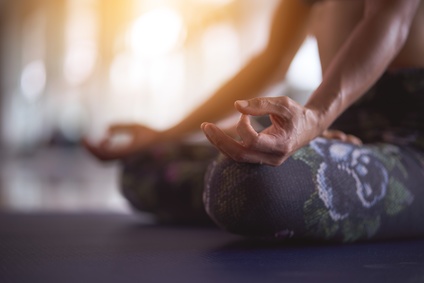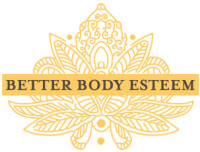
In yoga we talk a lot about witnessing – the act of noticing things like your physical body in a pose, where your thoughts are, and your breath. Yet in witnessing, we may find ourselves in judgment – comparing our pose to someone else’s, criticizing ourselves for wandering thoughts, or judging our breath as too shallow or uneven.
From there things get exponentially worse as we realize we’re judging ourselves (“I can’t believe I’ve gone there again”), when we’re supposed to be witnessing.
My son recently told me about a meditation book he was reading called The Mind Illuminated, by John Yates, PhD, Matthew Immergut, PhD, and Jeremy Graves. The book says that when you meditate and you find your thoughts are going elsewhere, every time you bring yourself back, get pleasure from that – smile about that.
Embrace the mindset that of course your mind is wandering! Meditation is a practice, not something we have to be perfect with – or could be even if we tried. We can expect our mind to wander, and we can gently bring it back.
We can also notice what we’re going towards repeatedly and maybe work on that. Is there one relationship or issue that our minds are drawn to more than any other? That might be something to discuss with a counselor or in a support group, or write about in your journal.
It’s the judgment of our judgment that gets us. We get so hard on ourselves and it can even lead us to give up on meditation. Sadly, many people today have anxious minds to begin with, which is what leads them to seek meditation.
Judgment may be a habit, maybe even something of a survival strategy. People may judge themselves harshly in an attempt to become better – or even perfect – at something. They think that attacking themselves will push or punish their bad behavior away, but judgment can be like a venom. It can make us feel worse, not better, about ourselves.
A gentler approach
There are far less harmful ways of witnessing and gently changing our behavior. We can learn to think of things not as good or bad, but as neutral. We can become an objective observer rather than a harsh or abusive critic.
Sometimes it helps to start by practicing not judging other people – not trying to figure out why they look or behave a certain way, not making assumptions or evaluating everything about them, but observing other people with curiosity. This can help us tone down our polarized good or bad thinking.
This will be most challenging with the people closest to us – the ones we think we know so well. “They’re this way and that’s the way they’ve always been and always will be.” But it’s worth the effort to open our minds and give people the chance to surprise us and change.
We’ll feel better about ourselves when we can stop being as judgmental, and practicing with other people makes it easier to be less judgmental of ourselves.
If you notice yourself being judgmental, try to explore the experience with curiosity. Move into an observing perspective. Bring in your other senses, by noticing where you’re feeling what feelings in your body – in your stomach, in your shoulders.
Then instead of trying to change your thinking or behavior, try to relax or soothe those parts of your body where you’re experiencing the judgment. This can be a very effective alternative to addressing the issue head-on.
Lastly, Health Journeys and Insight Timer are two meditation resources that can help you learn to still your mind – and support you gently and lovingly as you will inevitably see your busy thoughts flowing back into your mind. For more ideas and resources, ask us about our other favorites!
